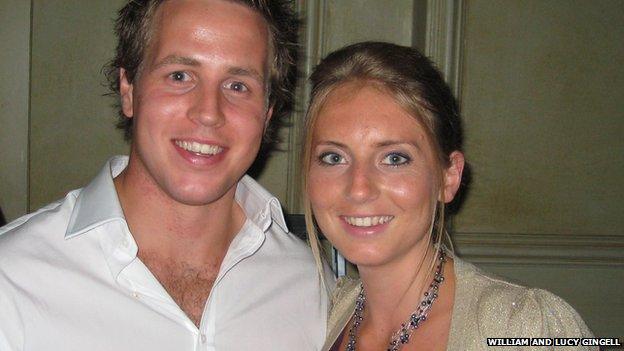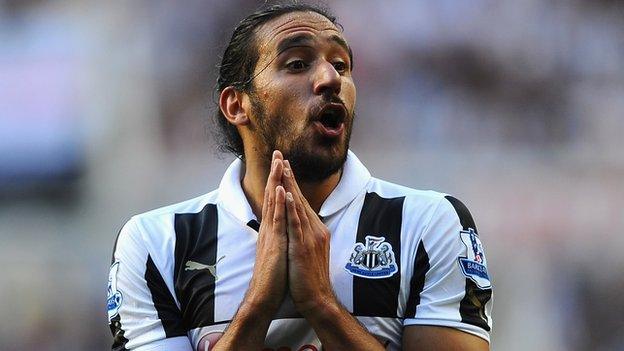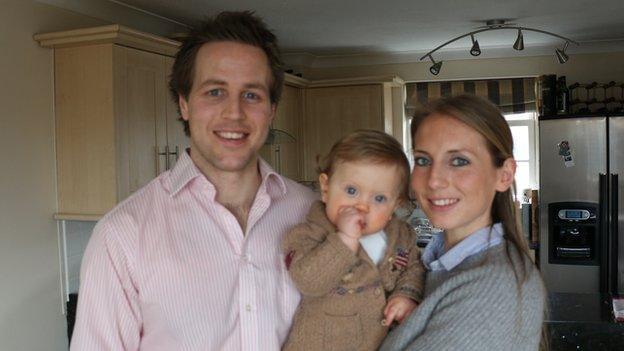Young men unconfident checking for testicular cancer
- Published

Will was diagnosed with testicular cancer at 17
Young men are being encouraged to check their testicles on a regular basis; as not enough do according to research seen by Newsbeat.
Orchid, a leading male cancer charity, says only 38% of 18 to 34-year-olds are confident in recognising the signs of testicular cancer.
That's despite it being the most common type of the disease to affect young men.
Will Gingell found a lump in one of his testicles when he was 17.
"It came out of nowhere really," he tells Newsbeat.

Newcastle United footballer Jonas Gutierrez was diagnosed with testicular cancer last year
"I just found a very distinct lump. It was very hard, solid and felt very different. There was no pain, aching, nothing, I felt fine."
Though it was only when Will asked his girlfriend Lucy for a second opinion that he sought professional help.
"When Will first came to me and said he had a lump, he said it in a jokey way," she explains to Newsbeat.
"It was a very distinct, hard lump on the side of his testicle. It didn't look right and it didn't feel right.
"Straight away I told him he had to go and get a doctor to look at it."
According to Cancer Research UK around 2,300 men are diagnosed with testicular cancer in the UK every year.
That's double what it was 40 years ago.

The couple have a baby now; in most cases removing a testicle shouldn't affect fertility or sex
"Not once did either of us at the time think 'oh there's a lump, therefore that means cancer,'" Lucy says.
"It was more that it could be a cyst or it's just abnormal, so I think it was very easy for Will to just dismiss it."
But after going to see a doctor Will and Lucy were told it was cancer.
Testicular cancer is one of the most treatable types of the disease. More than 96% of men with early stage testicular cancer will be completely cured.
"I wasn't scared," the 28-year-old says.
"It was a case of 'this is what I've found, what do I need to do to get rid of it and how do I move forward?'"
Radiotherapy and chemotherapy weren't deemed necessary, but Will was told he was going to have to have his cancerous testicle removed.
"It's one of those things that can really knock a man. I was offered a prosthetic testicle, but it wasn't something I really looked at."
While some patients who undergo chemotherapy may be asked if they want to freeze some of their sperm, this wasn't something doctors felt Will needed to do.
Then nine months ago Lucy gave birth to the couple's first child.
"This just goes to show that fertility isn't [necessarily] an issue and you still can have children," Will says.
The couple now believe getting people to check their own or their partner's privates is crucial.
"There's no point being embarrassed about it.," says William.
"It's nothing to be embarrassed about. This is a life threatening disease.
"If you've got a concern - go and see a doctor. At the end of the day, that's what they're paid for and it could save your life."
For advice on what to feel when testing yourself or your partner for symptoms of testicular cancer, visit BBC Advice.
Follow @BBCNewsbeat, external on Twitter, BBCNewsbeat, external on Instagram and Radio1Newsbeat, external on YouTube